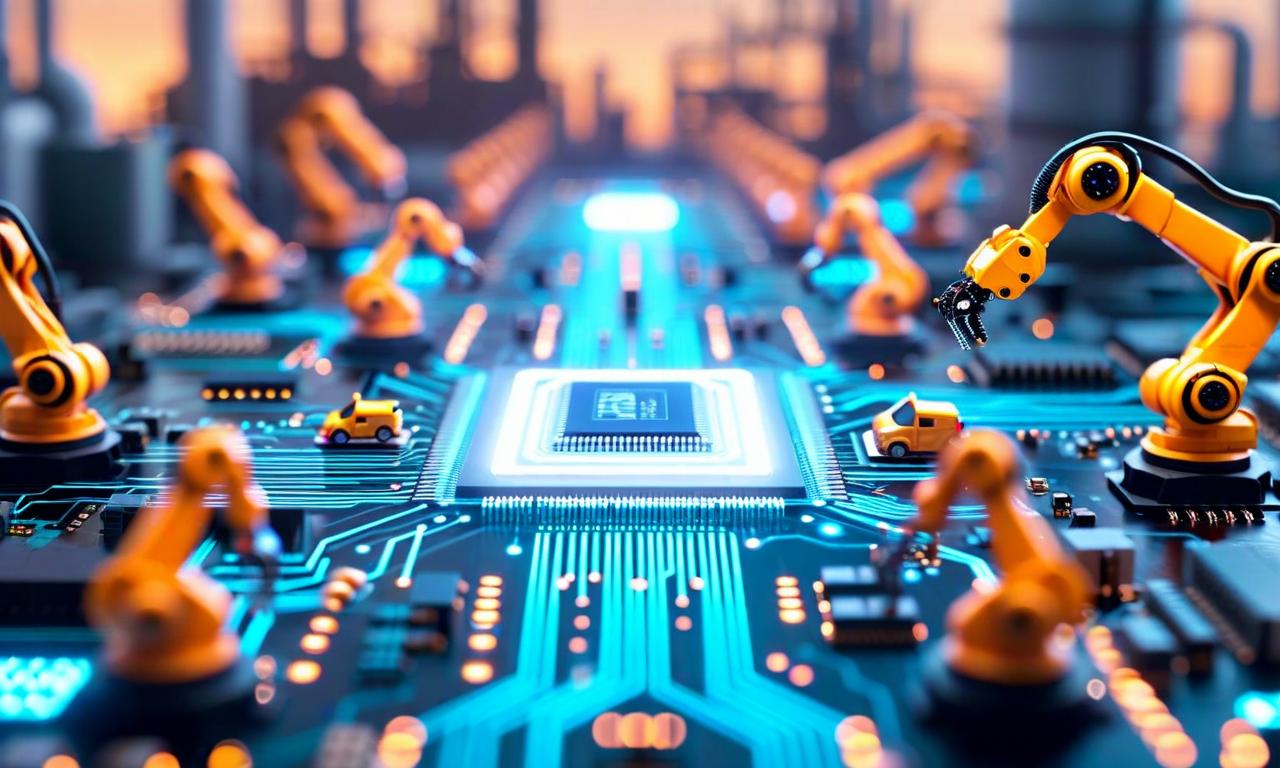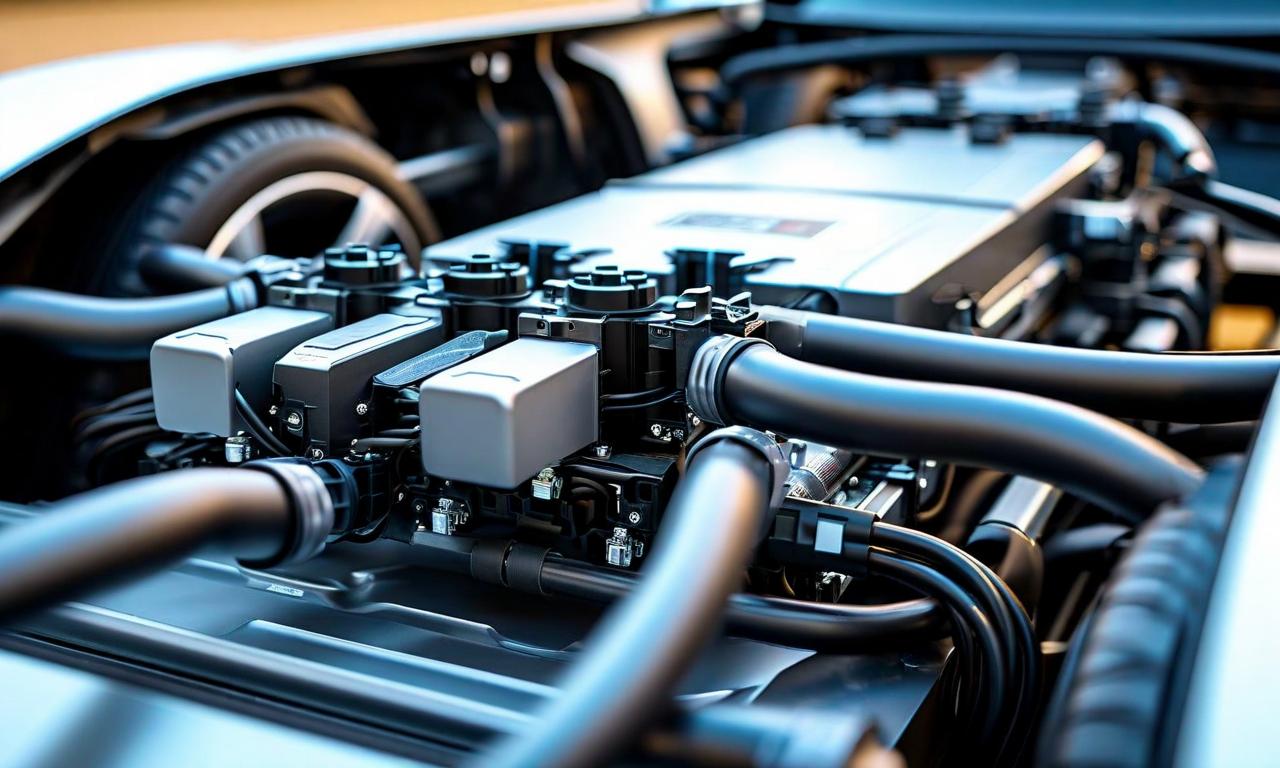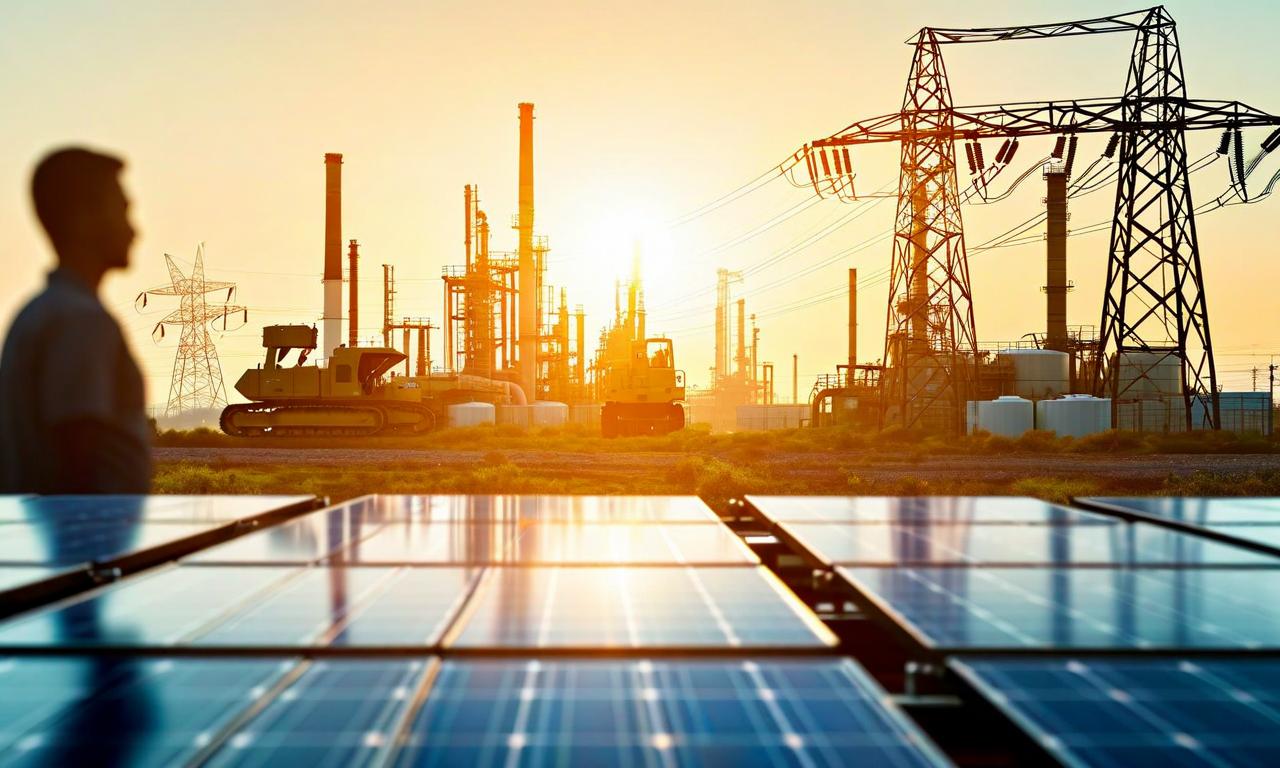Tesla Diversifies AI Chip Production: Samsung to Share Manufacturing with TSMC
Tesla announced that Samsung Electronics will join TSMC in manufacturing its AI5 chip. The AI5 chip, designed without conventional GPU features, powers Tesla's self-driving capabilities and robot line. Samsung already produces Tesla's AI4 chip and will manufacture the future AI6 chip, having signed a $16.5 billion deal in July. Samsung is also building a production hub near Tesla's Austin headquarters. This partnership diversifies Tesla's chip supply chain, potentially offering benefits in resilience, pricing, and access to varied technologies.

*this image is generated using AI for illustrative purposes only.
Tesla, the electric vehicle giant, is making strategic moves in its chip production strategy. CEO Elon Musk recently announced that Samsung Electronics will join Taiwan Semiconductor Manufacturing Co. (TSMC) in manufacturing Tesla's AI5 chip, marking a significant shift from the company's previous plans.
Key Points of the Announcement
- Shared Manufacturing: Samsung Electronics will now share manufacturing duties with TSMC for Tesla's AI5 chip.
- AI5 Chip Design: The chip is designed without conventional graphics processing unit features, omitting image signal processing to maximize efficiency and save space.
- Chip Applications: Tesla uses these AI chips to power self-driving car features and its robot line, alongside Nvidia hardware.
Samsung's Expanding Role
Samsung's involvement in Tesla's chip production is growing:
| Aspect | Details |
|---|---|
| Current Production | Manufactures Tesla's AI4 chip |
| Future Production | Will produce the next-generation AI6 chip |
| Recent Agreement | $16.5 billion deal signed in July for AI6 chip production |
| Strategic Investment | Building a production hub near Tesla's headquarters in Austin |
Industry Position
While this partnership represents a significant win for Samsung, it's worth noting that the company remains second to TSMC in the foundry industry. However, this expanded role in Tesla's chip production could potentially strengthen Samsung's position in the competitive semiconductor market.
Implications for Tesla
This diversification in chip manufacturing partners could offer Tesla several advantages:
- Supply Chain Resilience: By working with multiple manufacturers, Tesla can potentially mitigate risks associated with supply chain disruptions.
- Competitive Pricing: Having multiple suppliers might allow Tesla to negotiate more favorable terms.
- Access to Different Technologies: Samsung and TSMC may offer different strengths in chip manufacturing, allowing Tesla to leverage the best of both.
As the automotive industry continues to evolve with increasing focus on electric and autonomous vehicles, Tesla's strategic partnerships in chip manufacturing underscore the critical role of advanced semiconductors in the future of transportation technology.





























